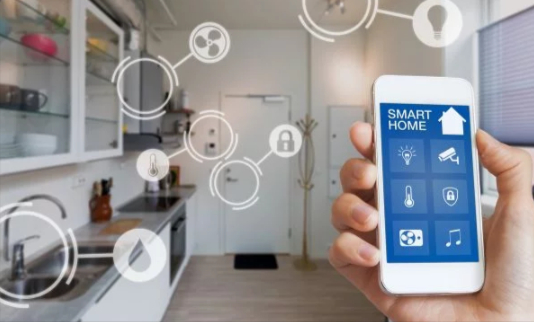As the smart home industry continues to grow, it brings a wave of new technologies designed to enhance convenience, security, and overall quality of life. In 2024, several emerging trends are set to redefine how we interact with our homes, making them more intuitive, efficient, and sustainable. For homeowners looking to incorporate these innovations, it is beneficial to collaborate with experienced professionals who can provide tailored insights and design solutions. Here’s a closer look at the key trends expected to shape the smart home landscape in the coming year.
Greater Integration of Artificial Intelligence and Machine Learning
Artificial Intelligence (AI) and machine learning are increasingly central to the smart home ecosystem. In 2024, these technologies are anticipated to play a more integral role in automating daily tasks and improving user experiences. AI-powered systems will become more adept at learning individual user habits and preferences, allowing for a higher level of personalized automation. For example, smart thermostats will not only adjust based on your routines but will also consider external factors such as weather forecasts and electricity rates to optimize energy usage. The use of machine learning algorithms will further refine the capabilities of voice assistants, enhancing their ability to understand and respond to complex commands and conversations.
Evolution of Voice Control and Natural Language Processing
Voice control remains a cornerstone of smart home functionality, but advancements in natural language processing (NLP) are expected to bring a new level of sophistication to this technology. By 2024, voice assistants will be capable of understanding more nuanced commands and engaging in richer, more natural dialogues. This will allow users to communicate with their devices more intuitively, managing everything from scheduling to security with simple, conversational language. Expect voice control to become more deeply integrated across a wider range of devices, providing seamless interaction throughout the home.
Growing Focus on Health and Wellness Integration
Smart home technology is increasingly being used to support health and wellness, a trend that is set to expand in 2024. Innovations in this area will include devices such as smart air purifiers, which can monitor air quality in real-time and adjust settings automatically to maintain a healthy indoor environment. Additionally, there will be a rise in smart fitness equipment and home gyms that offer interactive workouts, personalized coaching, and integration with other health-monitoring devices. Smart sleep solutions, such as mattresses that adjust to your preferred firmness and sleep tracking devices, will provide detailed insights into sleep patterns and suggestions for improvement.
Enhanced Energy Management and Sustainability
With growing concerns over energy consumption and environmental impact, the integration of smart home systems with energy management solutions will become more prevalent in 2024. Smart home platforms will increasingly collaborate with energy management technologies, enabling users to monitor, control, and optimize their energy use more effectively. This includes advanced smart meters, energy-efficient appliances, and systems that dynamically adjust lighting and heating based on occupancy and usage patterns. Additionally, there will be greater emphasis on integrating renewable energy sources, like solar panels, with smart home systems to promote sustainability.
Advances in Home Security Solutions
Home security continues to be a primary focus for smart home innovation, and 2024 is expected to bring several advancements in this area. New developments will extend beyond traditional security measures, incorporating AI to enhance threat detection and response capabilities. Smart security systems will feature advanced motion sensors, facial recognition technology, and real-time alerts that provide more accurate and actionable information. Moreover, smart locks and doorbells will offer improved remote access and monitoring capabilities, giving homeowners greater peace of mind and control over their property.
Focus on Seamless Interoperability and Standardization
The growth of the smart home market has highlighted the need for better interoperability between different devices and systems. In 2024, the industry will see a stronger emphasis on creating standardized protocols that allow devices from different manufacturers to work together seamlessly. Initiatives like the Matter standard are set to play a crucial role in achieving this goal, enabling smoother integration and a more unified smart home experience. As a result, consumers will benefit from greater flexibility and choice when selecting smart home devices, without worrying about compatibility issues.
Commitment to Eco-Friendly Innovations
Sustainability is becoming a core driver of innovation in the smart home market. In 2024, eco-friendly solutions will take center stage, with new technologies designed to minimize environmental impact. Expect to see a surge in energy-efficient devices, sustainable materials used in the production of smart home products, and systems designed to reduce waste and conserve resources. Innovations such as automated recycling systems, smart irrigation controllers, and devices that optimize water and electricity use will support more sustainable living practices.
Strengthening Privacy and Data Security Measures
As smart home devices collect and manage increasingly large amounts of personal data, concerns over privacy and security are intensifying. In 2024, manufacturers will place a greater emphasis on safeguarding user data and securing communication between devices. Enhanced encryption protocols, more transparent privacy policies, and advanced data protection technologies will be at the forefront of new developments. Consumers will also have more control over their data, with options to customize privacy settings and manage information sharing preferences.
Conclusion
The smart home industry is set to experience significant growth and transformation in 2024, driven by advancements in AI, voice control, health and wellness technology, energy management, and security. As these trends unfold, they will shape the future of how people interact with their living spaces, offering new levels of comfort, convenience, and personalization. Homeowners and builders alike should stay informed of these innovations to maximize the benefits and opportunities they bring, ensuring a smarter, more efficient, and sustainable home environment.

